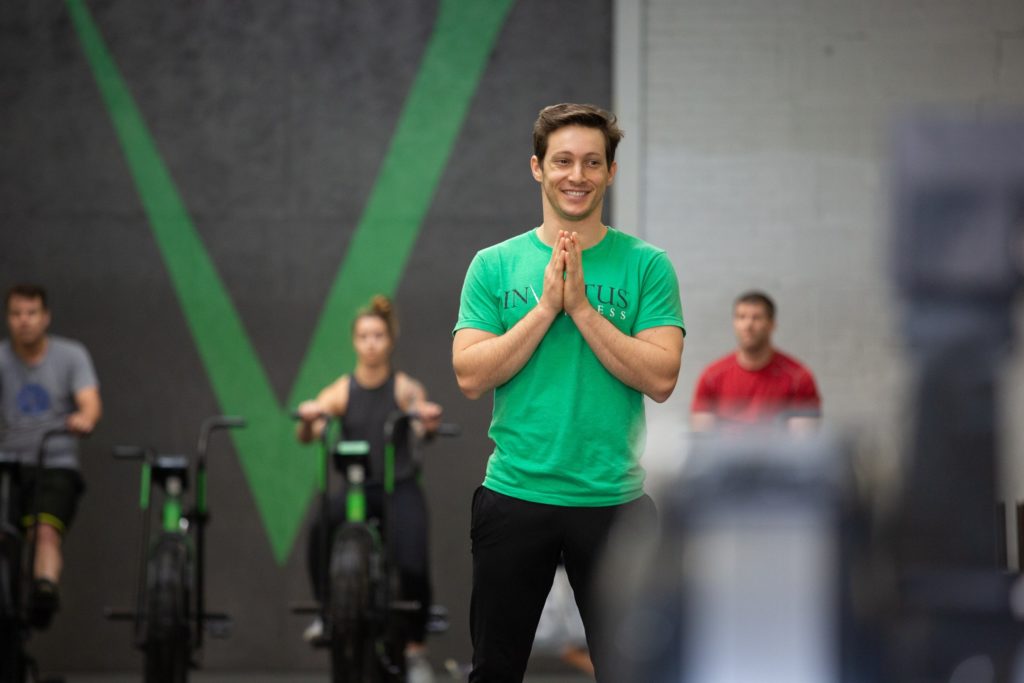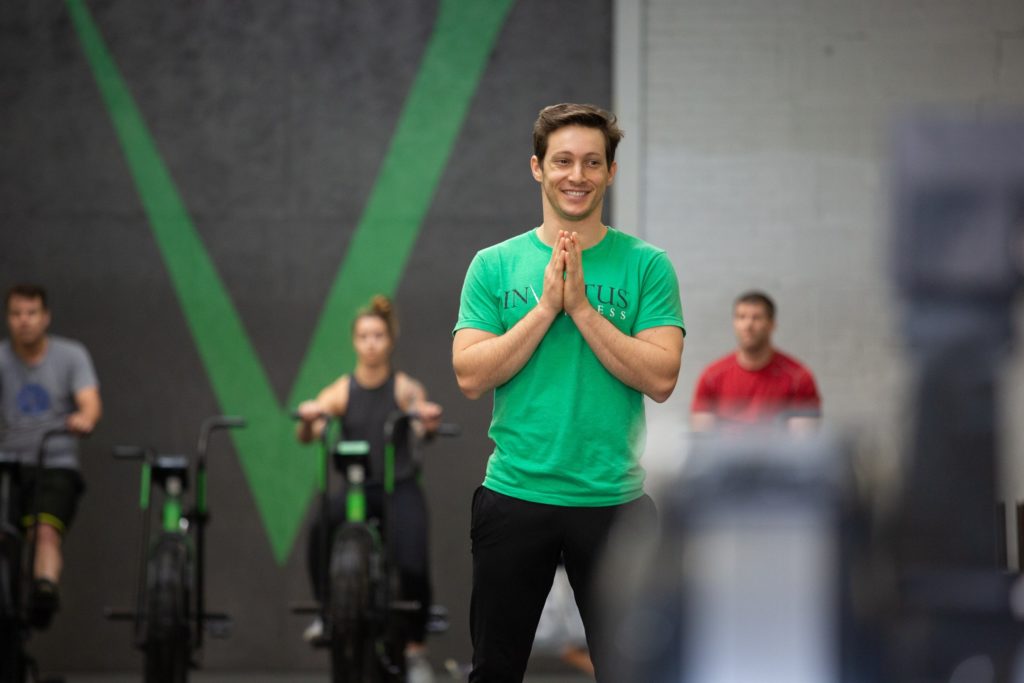Learn about brain health and nootropics to boost brain function
Better Sleep for a Better You


Better Sleep for a Better You
We’ve all heard it before…In order to perform at an optimal level, we require 7-9 hours of sleep per 24 hour period. The science behind it – heart rate variability, brain function, cell regeneration, inflammation maintenance, memory enhancement, etc. – is just about bulletproof (I know there is that rare genetic breed that only require 4-6 hours per night, but odds are you aren’t one of them, so don’t try it).
Now, how many of us actually are getting this? Even more importantly, how much of it is actually quality? Anyone can lay down and let their brain run crazy for a few hours, in and out of sleep, lucid dreaming, and say they slept 8 hours. But how many of us are going through the REM cycles and deep sleep needed in order to optimize our body’s functionality?
If you’re one of those people out there that this resonates with, stick with me, I’m about to give you a few tips (some more obvious than others) that can help you get to sleep faster, sleep more, and to improve your quality of sleep.
So, here we go…
#1 – Go to bed sooner.
Ok this one is obvious, right? The sooner you get to sleep, the more sleep you’re bound to get throughout the night (duh). But on a serious note, it is something that needs to be addressed.
How many of you find yourself mindlessly wandering through social media or fixed to a TV screen at night, or even reading into the late hours? Television and social media, especially, are notorious for increasing dopamine levels within the brain, which in turn keeps you feeling up and awake!
All of these things are contributing to keeping your mind up and running when instead you should be in the process of decreasing dopamine, increasing melatonin, and shutting your brain down. I’m going to bet the odds here and say that this pertains to the majority of us, which brings me to the slightly less obvious second tip..
#2 – Sunlight is good, artificial light is bad.
If you think about it, cavemen didn’t have watches or alarm clocks. Their circadian rhythm was controlled by the sun rising and setting. In layman’s terms…light = awake, dark = asleep. It is our primal and biological desire to do the same, but it is something almost all of us fall short of in today’s age. Too many artificial inhibitors have changed this rhythm in our brain, but there’s a few ways to help bring it back to equilibrium.
We live in a time where lives are influenced daily by screens. Whether it’s phones, iPads, computers, TV’s, or whatever, people these days are getting more exposure to screen time than ever before, and less exposure to direct sunlight. I understand that we live in a digital age. It’s imperative for many of our livelihoods to be connected to the world, but that doesn’t mean we can’t limit the amount of unnecessary time our eyes are exposed to artificial blue light and find a way to increase our exposure to sunlight.
Try waking up and going on a quick walk, stretching, or just standing in the sunlight first thing in the morning. I understand that’s not possible given certain geographical locations, but work with me here. Studies show that early daily exposure to sunlight has a direct correlation with the amount of melatonin your body creates at night – the hormone made by the pineal gland that helps regulate sleep-wake cycles. If for nothing else, feel how refreshing it is to feel the sunlight on your face first thing in the morning to tell your body it’s time to be awake. If you don’t live in a sunny place like San Diego, I recommend you move here. Kidding, sort of. In all seriousness, even if you’re in a cloudy and rainy place like where I used to live, try to get your eyes exposed to as much natural light as possible, whether it’s direct sunlight or not. That’s the important takeaway here.
The flip side to that is limiting our amount of exposure to artificial light. While sunlight helps to regulate your hormones, artificial light does the opposite. It can contribute to cataracts, macular degeneration, circadian disruption and poor sleep patterns, mitochondrial dysfunction, and the list goes on. It can even make you fat (because of all the other side effects it causes).
Now how do we limit our exposure to artificial blue light? The first obvious answer is to put the screen away, but that would be hypocritical as I’m sitting here typing this on a computer screen. Another answer and increasingly popular method I’ve seen others begin to implement, and that I’ve hopped on as well, is to wear blue light blocking glasses.
What kind of glasses should I get?
There are a wide array of companies and models of blue light blocking glasses, some more expensive than others. If you’re on a bit of a budget, try first looking for a brand that can block out 90% or more of blue light, with an even more specific quality being that they block wavelengths in the spectrum of 400-485nm. Typically lens color varies from yellow to orange to red, with darker lenses being better for night usage, and lighter colors being better for daytime. Some even come in prescription for those who need it.
If you’re someone who requires a lot of screen time for work, I highly recommend implementing this game changer. It’ll save your eyes, and reduce the mental fog, blurred vision, and headaches that are often associated with too much exposure to blue light.
Now that we’ve addressed our body’s primal desire for natural, and how artificial light can inhibit the benefits, let’s talk about how to fall asleep faster – without the use of sleeping pills!
#3 – Hack your sleep environment.
First step:
We’ve discussed harmful blue light, so I won’t go there again, but in all honesty how much light is in your sleep environment? Flashing laptop lights that all of our macbooks have, alarm clocks, smoke detectors, your fan or AC unit, the list could be endless. Our ancestors slept in the pitch black, which is what we’re meant to do as well. How do you do it? Try purchasing black out curtains, and taping over or covering the lights that do show up when you turn the big lights out. If that doesn’t work, consider purchasing a wrap around sleep mask that allows you to comfortably shut out all light.
Second step:
Increase the amount of white noise. If you’re like me, pure silence is a no go when trying to sleep. It just invites a never ending parade of thoughts. The best way to mitigate this is to turn on a fan, purchase a small AC unit, or even download a white noise app on your phone. Implementing some sort of white noise in the background can do wonders for shutting your brain off, this does not mean the television!
Third step:
Sleep cold. Studies show that somewhere between 60-67 degrees (F) is the optimal environment for higher quality sleep. The best way to do it is to have controllable central air that puts you in charge of the environment. I understand this option isn’t feasible for many of us. A second, cheaper, option would be to purchase a fan that allows airflow to cool the room down. A third option many people never think of is to purchase a device called a “chilipad”. This allows you to regulate the exact temperature you’re exposed to underneath the blankets. Although expensive, it’s a game changer and something many people overlook.
Fourth step:
Regulate water and food intake before bed, and always pee before you go to sleep. It seems silly, but having that tiny little bit of liquid stored up in your bladder can subconsciously disrupt your sleep pattern and limit your ability to fall into the deep sleep stage of sleep cycles. By limiting the amount of food and water you eat up to an hour or two before bedtime you can help to mitigate this, and reduce the potentially frequent night time potty breaks you (or your significant other) take.
By finding simple solutions to “hack” your sleep environment, you should find yourself being able to fall asleep faster, stay asleep longer (no more midnight tinkle breaks), and wake up feeling like you’ve slept better.
If you’ve got any tips or tricks that I haven’t discussed here, throw them in the comments section. We’d love to hear what works for you!
Also Check Out…Top 3 Supplements for a Better Night of Sleep.
Click here to view full article